Request accessible alternative
To request an accessible alternative format of any document, please email admin@dca.org.au. Please let us know which format you need and for which document. While DCA will do it’s best to provide you with the alternative you need, please be aware that not all formats may be available.
A practical guide for organisations
Disability status data is a powerful tool that helps organisations make informed decisions about their policies and strategies, monitor progress and drive positive change for people with disability within their organisations. But disability data collection is often not prioritised by all employers, and many employees with disability feel unsafe in sharing their status. This is why Diversity Council Australia and Australian Disability Network have partnered to produce the research report Disability Data at Work: How organisations can capture disability data safely and respectfully.
The report features research-based guidelines to assist organisations in creating environments where people with disability feel safe to share their disability status. The research includes a state-of-play of employment of people with disability, a strong case for change to create disability-inclusive workplaces, and a lock-and-key approach to creating safe and inclusive environments for employees to share their disability status.
Explore and share the case for change
Research reveals a strong case for change to create disability-inclusive and accessible workplaces – for organisations and for people with disability.
Increased profits
Organisations that embrace leading practices for employing and supporting people with disability have 28% higher revenue, twice the net income, and 30% higher profit margins than their peers not implementing best practice. These organisations are also 2 times more likely to have higher shareholder returns.
Increased innovation
Cruise control in vehicles, the phonograph, text function or touch features on our phones, the electric toothbrush, and the internet were all innovated by people with disabilities as part of designing themselves into a society that did not centre on their needs.
Better for mental health
Employees with disability who work in inclusive organisations are 4 times more likely to feel work has a positive impact on their mental health compared to employees with disability working in non-inclusive organisations.


Understanding the current state-of-play
Locked out of employment and career opportunities
People with disability are far more likely to be unemployed than people without disability. Only recently has the labour force participation of people with disability started to improve – it was 55% in 1993, 53% in 2018, and 61% in 2022 (compared to 77%, 84% and 85% for people without disability in the same years).
Non-inclusive recruitment is a major contributor for this. For example, research shows 1 in 5 people in Australia still think organisations should be able to refuse to hire people with disability.
Even once people with disability secure employment, they experience higher levels of discrimination and harassment, have less opportunity to contribute at work and are less likely to be treated fairly by their manager.
Experienced discrimination and/or harassment at work in the past 12 months

My immediate manager/supervisor treats everyone fairly, whatever their background (% strongly disagree + disagree)

Lock-and-key approach
I feel unsafe if I
have to share my
disability status.

To request an accessible alternative format of any document, please email admin@dca.org.au. Please let us know which format you need and for which document. While DCA will do it’s best to provide you with the alternative you need, please be aware that not all formats may be available.
Member-only content
Gain full access with DCA membership!
If your organisation has just signed up, your access will be activated as soon as payment is received.

